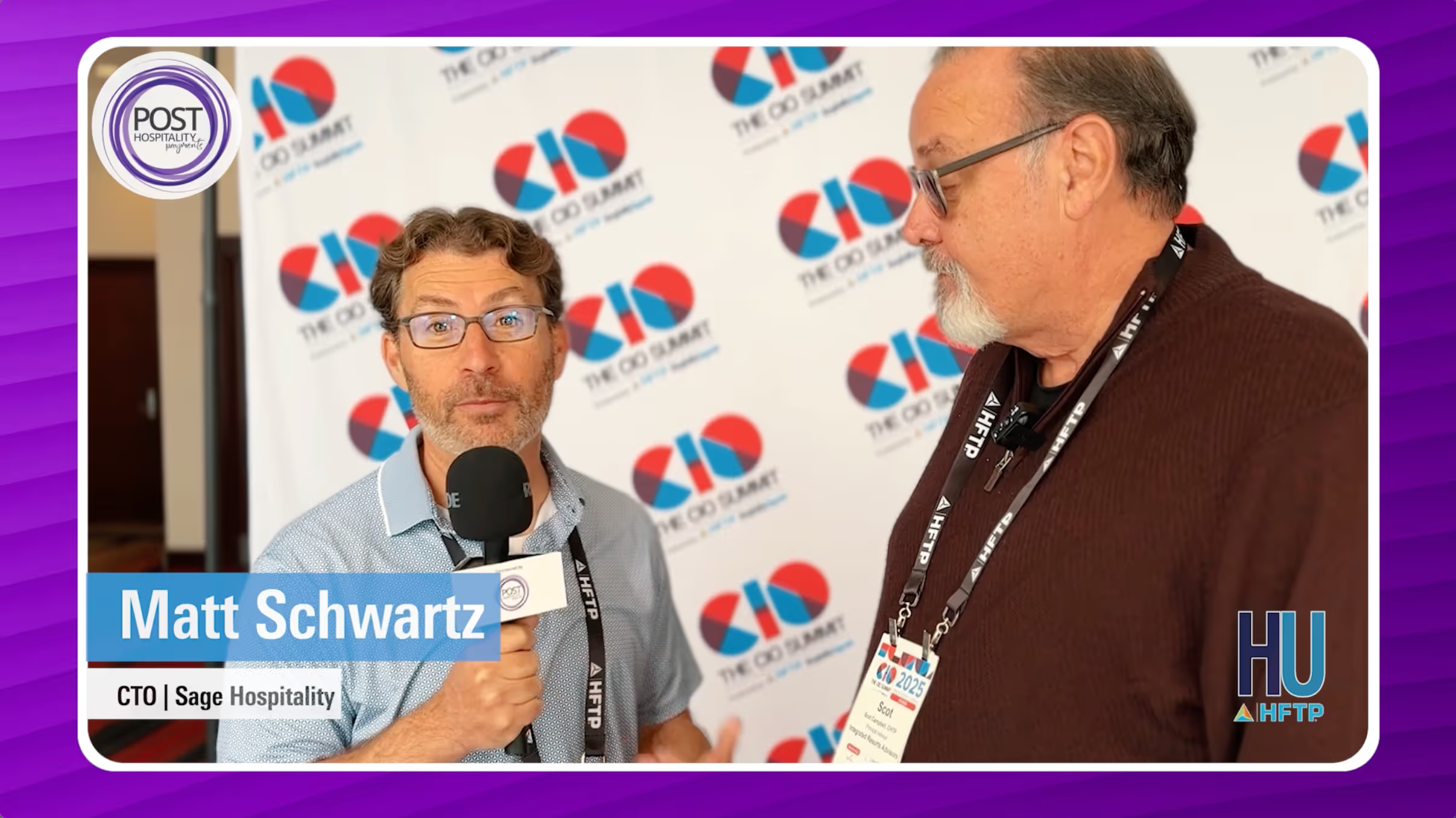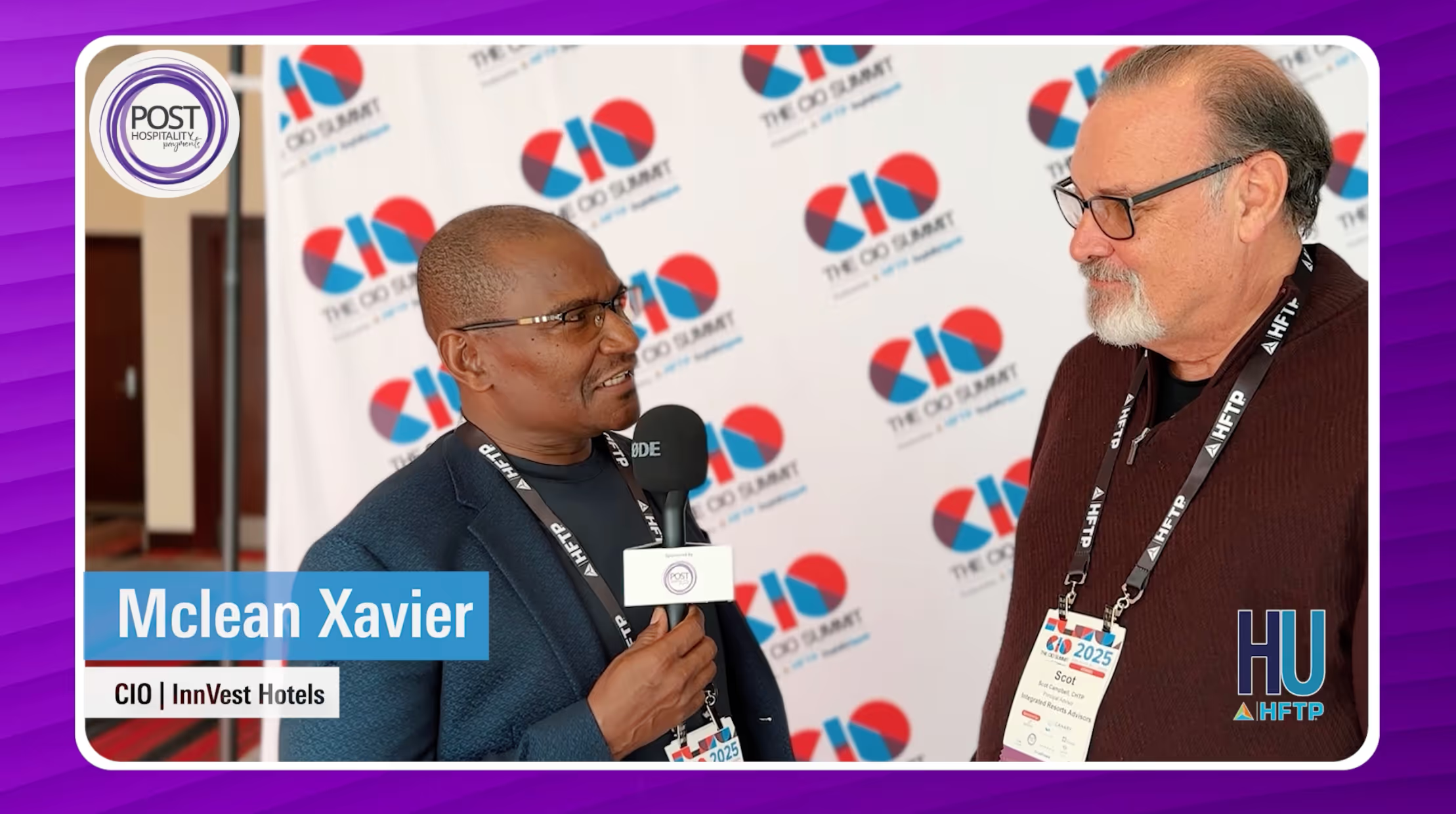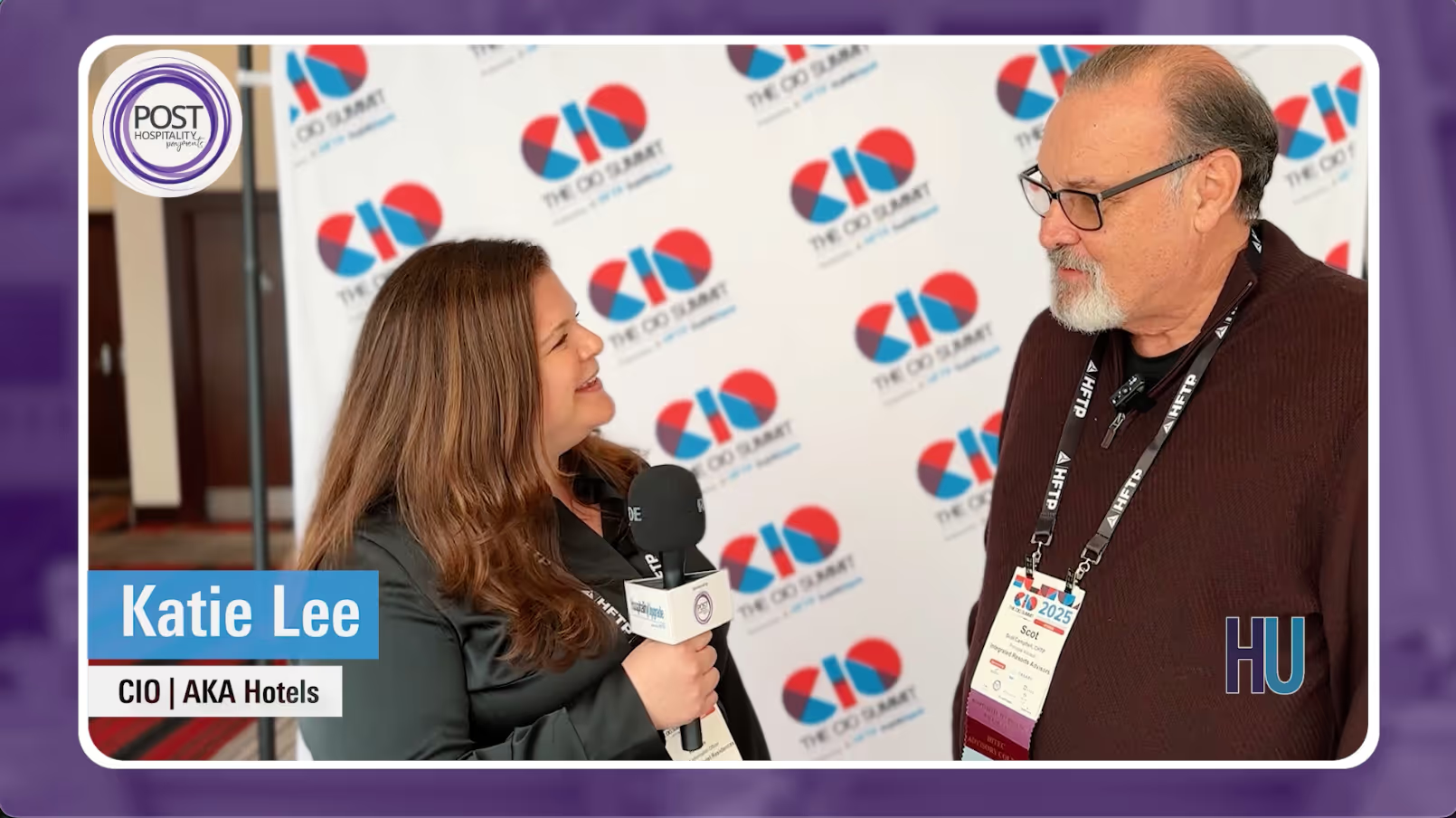If you were a regular follower of my “Definitely Doug” blogs (2019-2025, RIP), you may recall that each year at HITEC, I walked the exhibit floor trying to visit as many of the first-time exhibitors as possible. I used that material to highlight whatever was both new and interesting. If you couldn’t attend HITEC, were too busy working your own booth, were squirreled away in private meetings, or partied all night and slept through the show hours, I have you covered.
This year, even in my retired-from-regular-blog-writing days, I couldn’t resist the call of the first-timer exhibitors in Indianapolis, and to share my take on what was new. Time was too limited to visit the repeat exhibitors, and it’s likely that a few of them had new products or capabilities that I would have found interesting. But I leave it for their own marketing departments, for other pundits, or for Large Language Models (LLMs) to extol their virtues, whether real or hallucinated. Over the years, I have found that most (but not all) truly new ideas in hotel tech come from early-stage companies, or those entering hospitality from other industries. HITEC offers just fifteen hours of exhibit floor time, and you can’t come close to seeing all 350 exhibitors, so I focus on the first-timers.
HITEC Innovation Summary
Honestly, I found the amount of innovation on display this year to be disappointing in comparison to the prior two years. To be sure, some of the ideas that were launched in earlier years have continued to mature, but there just weren’t that many really new ones.
To be sure, AI is now getting embedded into more products and delivering continual improvements around the edges. But I really saw only one product that screamed AI transformation loud enough to break through all the surrounding chatter. A lot of what I saw would more accurately be described as AI-generated marketing hype than AI product innovations. Otherwise, AI has generated a lot of copycats (do we really need 100 different LLM chatbots?) but little true innovation.
At the same time, there were lots of interesting ideas in other areas. But one of my criteria for finding truly transformative products is that they need to be relevant to a large swath of the hotel industry, not just a small segment. Many of the “interesting” products are likely applicable only to a small slice of the hotel market. While I will mention some of them here because they will be relevant to some, it is with the caveat that for most, they may not be.
AI Hits a Road Bump
The lone product I saw that was using AI to do something that could be truly transformative for the industry was Levee. It was the buzz of the conference, winning both the People’s Choice and Judge’s Choice in the E20x competition – the first time that has happened in E20x’s 10-year history. I think this was well deserved, as the approach holds the potential to both significantly improve the quality of housekeeping services, to make the job easier to do well, and to vastly reduce the need for housekeeping inspections.
Levee’s innovation is using AI and the housekeeper’s mobile phone to both (a) train them on how to prepare a room correctly; and (b) have them take a video scan of the room when it has been completed. AI can then analyze the video for conformance to standard, identifying a missing towel or amenities, misplaced furniture, or other defects. To be sure, it is a young product and needs some time to mature. But it applies to almost any hotel, and provides laser focus on addressing two problems almost every hotel faces: training housekeepers, and ensuring the quality of guest room preparation, in both cases while minimizing supervisory time. I would absolutely pilot this product with the hope of three benefits: quality improvements, improved housekeeper retention, and supervisory cost reductions.
There were other products using AI in interesting ways, but they had narrower applications. Both Siv and Vella AI from Retreat were showcasing AI-assisted response to RFPs. The concept makes sense, enabling hotel sales departments to quickly acknowledge incoming leads even before a salesperson looks at them, with personalized, relevant information specific to the opportunity. They can then assist the salesperson in more detailed responses for the more promising leads.
Both products are early stage. They apply mostly to hotels with significant group and meeting business, and they lack some integrations that may be essential for any given hotel or brand. But just the ability to provide a personalized, immediate response to incoming leads is a good application of AI. Even if it is not highly detailed, it tells the event planner that you want their business. It can then give them enough information to help them assess whether your property can accommodate their event and is in their general price range. If they respond, it is as a qualified lead that your sales staff can now focus their time on.
A new category this year, although mostly relevant only to larger hotel groups and to some tech vendors, is workflow management for agentic AI. Airia, Soundhound’s Amelia, and Sensfix (the latter focusing specifically on maintenance tasks) were all showing new products in this category. This represents an approach that can help glue together LLMs with back-end processes, typically by identifying the intent of an LLM prompt and then guiding it through a process-flow diagram depending on that intent, the user type (e.g. guest or staff), additional information that might need to be collected, the back-end process that need to be called (typically via API), and managing the process of forming a plain-language response and presenting it to the user. Process flows can be easily adjusted, such as by dragging and dropping elements on a visual flowchart. I couldn’t assess the maturity of these products based on short exhibit-floor demos, but these or something like them will be needed to bridge the gap between LLMs and back-end systems.
One final AI product that caught my eye was from Hippo Video, which produces AI-generated videos to personalize the sales process. The video features a hotel staff member delivering a message, such as a sales executive providing a personalized welcome message as part of an RFP response, greeting the planner by name and perhaps referencing specific aspects of their event. Or, as I suggested, it could be the general manager greeting a guest by name on their hotel television when they first enter the room. Cool or creepy? I’m not sure. But I could see this type of capability being incorporated into lots of hotel applications in both the group and transient sales process, a pre-arrival welcome message sent by email or text link, and onsite. It’s hardly rocket science, and there isn’t much that’s proprietary that any one vendor would be able to protect in the market, but it could be a great feature for many existing vendors to embed.
Robotics
There were plenty of new products on display in this category, some of them (like drink making machines) similar to ones seen in past years, but a few that were more innovative. Dyna Robotics was showing robotic arms that can use AI to learn human mechanical tasks, such as folding towels. Tangible had a robot with arms and a hand that can assist with certain elements of guest room preparation, such as basic pickup, or arranging toiletries or towels. Urbot Robotics showed a modular robot that had a single chassis that could attach itself to either a storage unit that could be used for deliveries, or to a vacuuming unit. Sharing the high-cost chassis with multiple appendages could reduce the cost of ownership for many hotels, since the chassis typically accounts for most of the cost.
IntBot was showing a humanoid robot that could sit at a desk, look at you, talk to you, and do certain mechanical things limited to one location. Its human-like features were very cool, but I had a hard time imagining it providing value in a hotel setting, except perhaps to entertain kids in the lobby (and I’m pretty sure there are cheaper ways to do that). Finally, Seed Apps Empire was showing an AI-powered ironing machine capable of autonomously ironing a shirt in about four minutes. I don’t see it replacing traditional ironing stations in a commercial or hotel laundry, but it could be a useful and potentially profitable vending solution serving guests who need a quick press.
Marketing, Sales, and Distribution
I counted about a dozen new products around upselling, personalization, and cross-selling. But while some were impressive, I saw very little that I hadn’t seen in other products in prior years. I keep waiting for that total solution that handles every sales opportunity perfectly and personally, extracting the maximum share of wallet from every guest for the entire journey. That’s a tall order and I know it won’t appear magically from the ether. I keep looking for that product that has the potential to get there within a few years. But I still haven’t found it.
While only relevant to resorts and select hotels, Nutmeg provides a guest-facing capability for booking restaurant reservations, spa services, and golf tee times at the hotel, using its own booking modules and/or third-party integrations. And Trybe brought to the U.S. for the first time a spa booking system that was truly modern and impressive in a space that could benefit from more competition.
Guest Room and Operational Technology
One of the more interesting innovations I saw this year doesn’t really meet my definition of hotel technology, but it nevertheless provides real value for some hotels. Eeva was demonstrating a guest-room washer-dryer that operates without plumbing. To use it, you lift a bin out of the unit, fill it with water at the sink or bathtub, replace the bin, add clothes, and turn it on. When it’s done, you pick up the bin and empty the wastewater into the sink, and pull out the cleaned and dried clothes.
Hotels that cater to long-stay guests or those on longer road trips could offer this in select rooms as an upgrade for an additional fee. It won’t replace laundry service for guests on an expense account, but it sure beats paying $15 to send one pair underwear to the hotel dry cleaners, or trying to find several dollars in quarters just so you can hang out in a sweltering laundry room for two hours to make sure your clothes don’t get stolen. I wouldn’t use it every trip, maybe only two or three times a year, but when I need it, I would happily pay a $20-$30/night premium for the convenience.
Another interesting company was NoLix, which provides various types of cost-effective leak detection technology, some of which I had not seen before. Their $30 toilet leak detector goes into the water tank and uses AI to analyze deviations from normal water movement patterns that might indicate a leak, such as the water level varying between flushes. Another $30 product will shut off water to the sink if it is left on for too long (and reset it when the faucet is manually turned off). And while not yet productized, they also had a technology that could mount on the shower ceiling and detect problematic water accumulation on the shower floor, as can happen if the drain gets blocked. Yes, it happens; I know of high-rise Las Vegas hotels that have suffered hundreds of thousands of dollars of water damage when a large person passes out in the shower, lands on top of the drain, and it floods all the floors below. Why did they pass out, you ask? Well, what happens in Vegas stays in Vegas.
Ocra was showing a solution that enables hotels to monetize unused parking spaces by distributing them through various parking apps (think of it as a channel manager for parking, that feeds the parking OTA-equivalents like Spothero). This type of solution should be on the agenda for any city hotel with its own parking lot or garage, anywhere that parking is hard to find or expensive.
Finally, Touchtab from Mtech Mobility was showing a tablet that integrates a property management system (PMS), point-of-sale (POS) and payment processing capability all on one device. It works (at least in concept) with any PMS or POS, enabling even hotels with older legacy systems to untether their staff from fixed terminals, while providing them all of the mobile capabilities needed to serve customers where they are.
Conclusion
AI was everywhere in Indianapolis, especially in vendor marketing messages. But this year its reality appeared mostly through incremental product improvements, not revolutionary change – the one exception I found being Levee. This was a notable change from 2023 or 2024, when I saw lots of really new and innovative AI-inspired products across the entire spectrum of technologies used in hotels. And while there were some new ideas this year in robotics (some of which hold promise for the future), I didn’t really see much that was compelling today, other than the delivery and cleaning robots that have been around for years.
Otherwise, I found a few new interesting products that I expect to find more permanent homes in hotels. But if I think back across the past ten HITECs and rank them on exhibit-floor innovation, this year was one of the weaker ones. I think this was probably predictable; the AI and robotics hype cycles have gotten past the “wow” stage and are now entering the “wow, this a lot harder than we thought” stage. As Gartner might say, we are entering the Trough of Disillusionment and still awaiting the Slope of Enlightenment.
Maybe next year.
As always, feedback to my articles is welcome. Since the host site does not support discussions, I will post a link to this article on my own LinkedIn page once it has been published, and I invite you to comment, like, or share from there!


































.avif)



.avif)
























.avif)


.avif)




































.gif)





